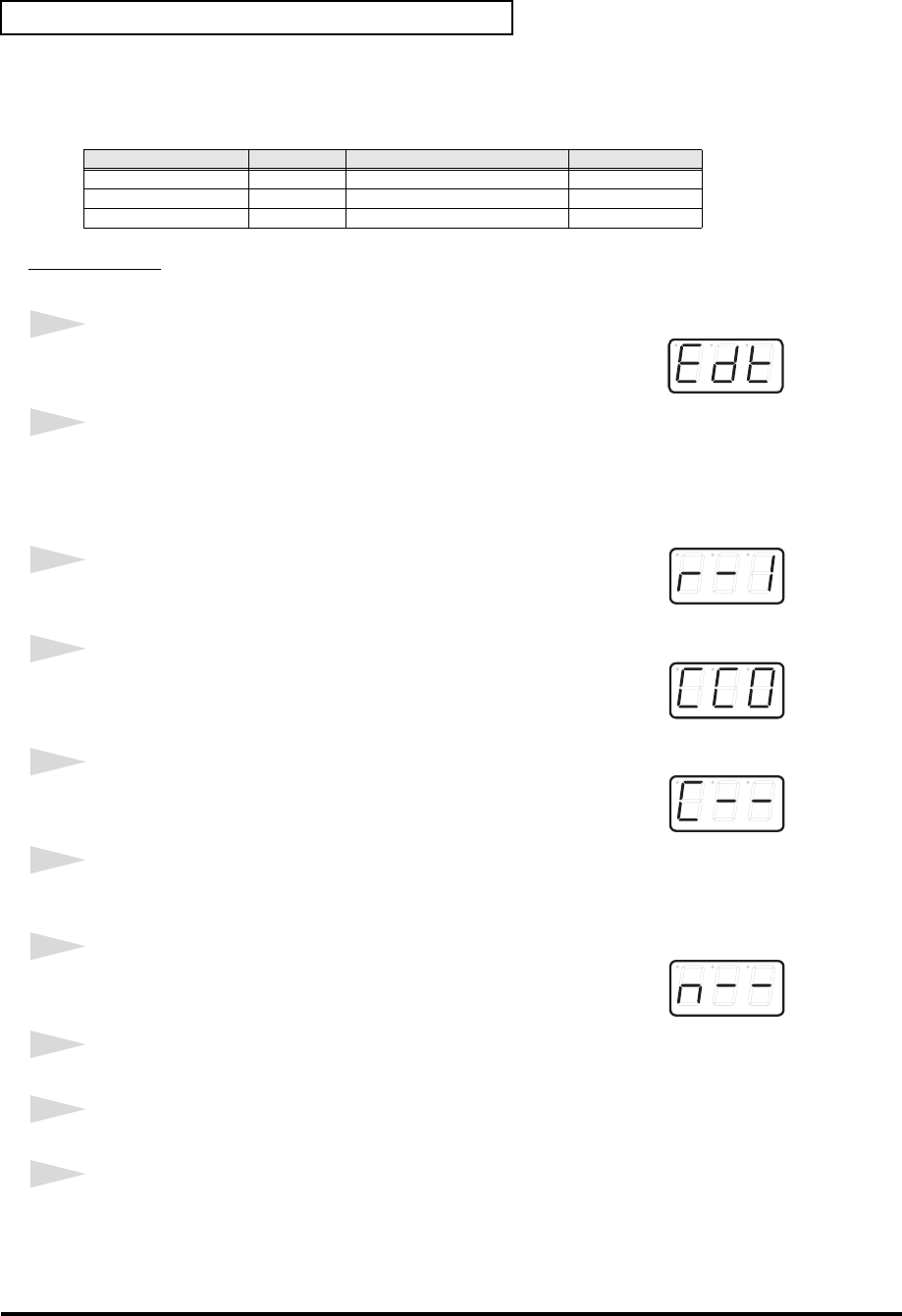
132
Edit mode (EDIT)
■ CONTROL CHANGE ASSIGN
Here’s how to assign a control change message to a controller.
Basic mode
fig.edt
1
Press the [EDIT] button.
The display will indicate “EDT”.
2
Slightly move the controller to which you want to assign a Control Change message. In the
case of a button, press that button.
fig.r-1
The display will indicate the number of the selected controller.
3
Confirm what’s indicated, and press the [ENTER] button.
fig.cc0
4
Press the [CONTROL CHANGE] key.
The display will indicate “CC0”.
fig.c
5
Confirm what’s indicated, and press the [ENTER] button.
The display will indicate “C--”.
*1 Reference
6
Input the channel. Use the [DEC][INC] buttons or the [0]–[F] keys to specify the channel.
fig.n
7
Press the [ENTER] button.
The display will indicate “N--”.
*1 Reference
8
Use the [DEC][INC] buttons or the [0]–[F] keys to specify the control change number.
9
Press the [ENTER] button.
10
If you are making an assignment for a button, specify the button mode. (➔“Specifying the
button mode” (p. 158))
Mode keyboard Value range Port
Basic mode 0 00–7FH PCR 1
Advanced mode 1 1 Assignable Assignable
Advanced mode 2 2 Simulates a rotary encoder Assignable
*1 The -- area displays the currently set value. If it has not been set, the default setting will be displayed. Even if you change the type or
mode of the MIDI message that is assigned, the default setting will be displayed. This will be lit if the value is the same as the currently
set value, or will blink if the value is different.
